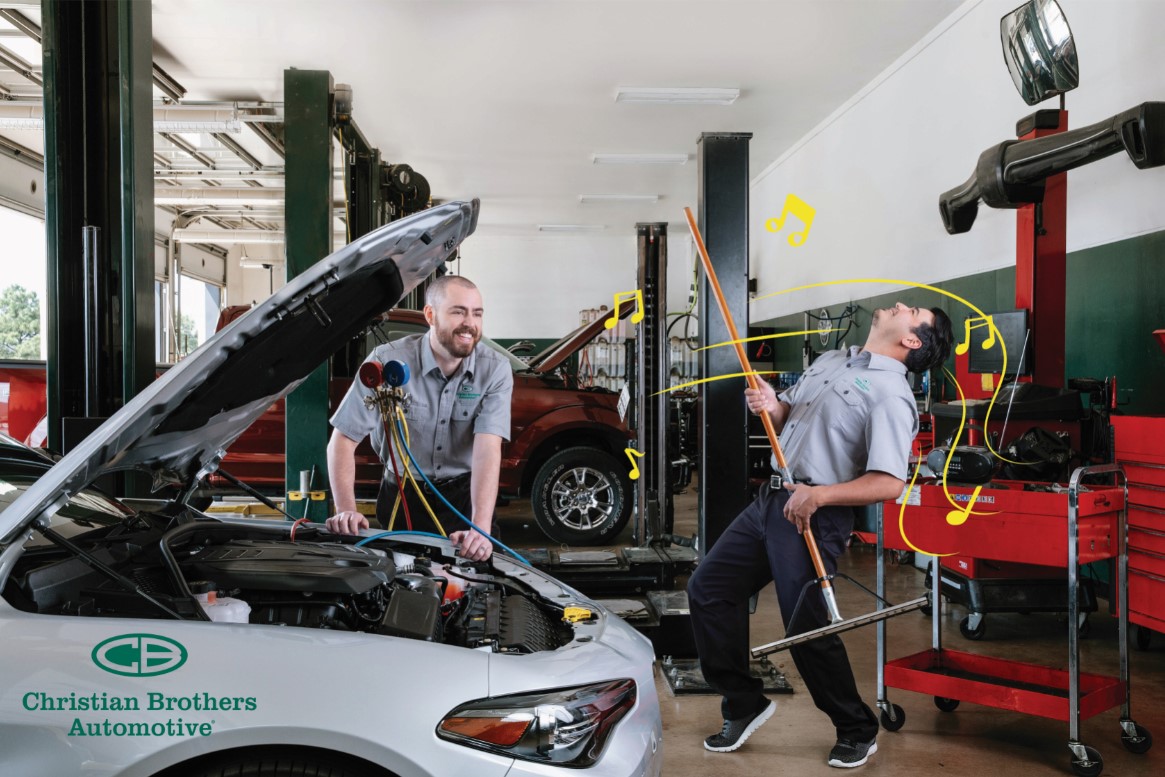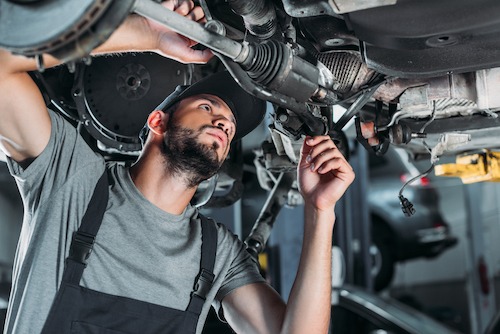All Categories
Featured
Engine repairs are commonly one of the most pricey repair work you might run into as a car owner. The price of repairing or changing components of your engine can differ widely, and several aspects play a duty in identifying the last cost.
As an example, an easy oil adjustment or ignition system substitute might only cost you a couple of hundred bucks, while an engine restore or substitute could cost numerous thousand dollars. The extent of the trouble and the components that require to be replaced are crucial elements in determining the last costs.
![]()
Additionally, the quantity of labor required relies on the kind of engine problem. A repair work calling for full engine disassembly will take even more time than changing a basic component, and this additional time is reflected in the labor cost.
![]()
Furthermore, the make and design of your car can affect the cost of engine repairs. High-end or foreign lorries typically require a lot more costly parts that might be tougher to discover, increasing the overall repair expense. Common residential lorries have a tendency to have quicker available parts and may be cheaper to fix.
Older automobiles might additionally have trouble sourcing components, especially if the car is terminated or uncommon. In such situations, you might require to utilize reconditioned or utilized parts, which can often lower expenses yet may feature added risks pertaining to top quality and reliability.
On the other hand, automobiles from even more usual brands like Ford, Toyota, or Honda tend to have reduced fixing expenses since their parts are much more commonly readily available, and several mechanics are acquainted with them. Service centers frequently have the required equipment for these vehicles, which helps lower labor time and costs.
![]()
Final thought. Engine repair service expenses can be considerable, yet recognizing the factors that affect these expenses can assist you make much better decisions when it comes time for repair work. The intensity of the damage, the type of components utilized, labor prices, the make and design of your automobile, and the diagnostic costs are all important variables that add to the complete repair service cost. By taking into consideration these aspects, you can much better estimate what your fixing may cost and guarantee that you're not caught off-guard by any kind of unforeseen fees. Always go shopping around, obtain multiple quotes, and evaluate the top quality of solution and parts when choosing a service center to get the very best value for your cash.
- The Degree of the Damage. The seriousness of the engine issue is maybe one of the most substantial consider figuring out the price of fixings. Small engine troubles, such as worn-out spark plugs, harmed belts, or a defective sensor, are generally less expensive to deal with because they don't need disassembling the engine. On the other hand, more significant concerns like a split cylinder head, blown gasket, or a harmed crankshaft can be very costly because of the intricacy and extensive labor included.
As an example, an easy oil adjustment or ignition system substitute might only cost you a couple of hundred bucks, while an engine restore or substitute could cost numerous thousand dollars. The extent of the trouble and the components that require to be replaced are crucial elements in determining the last costs.

- Labor Prices. Labor is one of the key expenses related to engine repair service. This is particularly real for complicated repairs, as dealing with engine issues commonly calls for hours or also days of work. Labor costs can differ relying on where you live, as repair service stores in city locations typically bill much more per hour than those in backwoods. Typically, labor rates can vary from $80 to $150 per hour, with even more customized or experienced mechanics billing greater rates.
Additionally, the quantity of labor required relies on the kind of engine problem. A repair work calling for full engine disassembly will take even more time than changing a basic component, and this additional time is reflected in the labor cost.
- Components and Materials. The cost of replacement components can also vary substantially, specifically if you're using initial tools supplier (OEM) parts or high-performance parts. OEM components are normally extra costly than aftermarket parts, however they are typically suggested to make sure the durability and correct function of the engine. Aftermarket components are typically less expensive and can provide a much more inexpensive choice, however they could not always fulfill the exact same top quality standards as OEM components.

Furthermore, the make and design of your car can affect the cost of engine repairs. High-end or foreign lorries typically require a lot more costly parts that might be tougher to discover, increasing the overall repair expense. Common residential lorries have a tendency to have quicker available parts and may be cheaper to fix.
- Age and Gas Mileage of the Vehicle. The age of your vehicle plays a considerable role in figuring out the cost of engine repair. Older vehicles with high gas mileage tend to have even more damage on the engine components, which means that repair services may be extra pricey and considerable. With time, engine components use down and are most likely to fall short, leading to more constant repairs.
Older automobiles might additionally have trouble sourcing components, especially if the car is terminated or uncommon. In such situations, you might require to utilize reconditioned or utilized parts, which can often lower expenses yet may feature added risks pertaining to top quality and reliability.
- Lorry Make and Model. The certain make and design of your vehicle will heavily affect the cost of engine repair services. As an example, high-end brands like BMW, Mercedes-Benz, and Audi usually have higher fixing costs because their components are more expensive, and specialized knowledge is called for to function on them. Furthermore, these brands may call for specific tools or analysis equipment, which can include to the overall cost.
On the other hand, automobiles from even more usual brands like Ford, Toyota, or Honda tend to have reduced fixing expenses since their parts are much more commonly readily available, and several mechanics are acquainted with them. Service centers frequently have the required equipment for these vehicles, which helps lower labor time and costs.

- Analysis Charges. Prior to carrying out any type of fixings, the mechanic will usually perform a diagnostic test to establish the source of the problem. This test may include scanning the automobile's onboard computer system or executing numerous checks to evaluate engine efficiency. Analysis charges normally vary from $50 to $150, depending upon the complexity of the examinations. Some service center might offer a price cut or forgo this cost if you determine to proceed with the advised repairs, while others may charge it individually.
- Area of the Fixing Store. Where you take your vehicle for repair work can additionally influence the rate. In comparison, fixing stores situated in smaller sized towns or much less booming locations may supply a lot more affordable prices.
Final thought. Engine repair service expenses can be considerable, yet recognizing the factors that affect these expenses can assist you make much better decisions when it comes time for repair work. The intensity of the damage, the type of components utilized, labor prices, the make and design of your automobile, and the diagnostic costs are all important variables that add to the complete repair service cost. By taking into consideration these aspects, you can much better estimate what your fixing may cost and guarantee that you're not caught off-guard by any kind of unforeseen fees. Always go shopping around, obtain multiple quotes, and evaluate the top quality of solution and parts when choosing a service center to get the very best value for your cash.
Latest Posts
The Restroom Upgrade Every Detroit Home Is Worthy Of
Published Apr 19, 25
1 min read
Affordable Car Repair Services at Montclare Auto Repair - Don’t Wait, Act Now!
Published Apr 19, 25
2 min read
Unlock Exclusive Discounts with WyHy's Love My Lending institution Rewards
Published Apr 19, 25
1 min read
More
Latest Posts
The Restroom Upgrade Every Detroit Home Is Worthy Of
Published Apr 19, 25
1 min read
Affordable Car Repair Services at Montclare Auto Repair - Don’t Wait, Act Now!
Published Apr 19, 25
2 min read
Unlock Exclusive Discounts with WyHy's Love My Lending institution Rewards
Published Apr 19, 25
1 min read